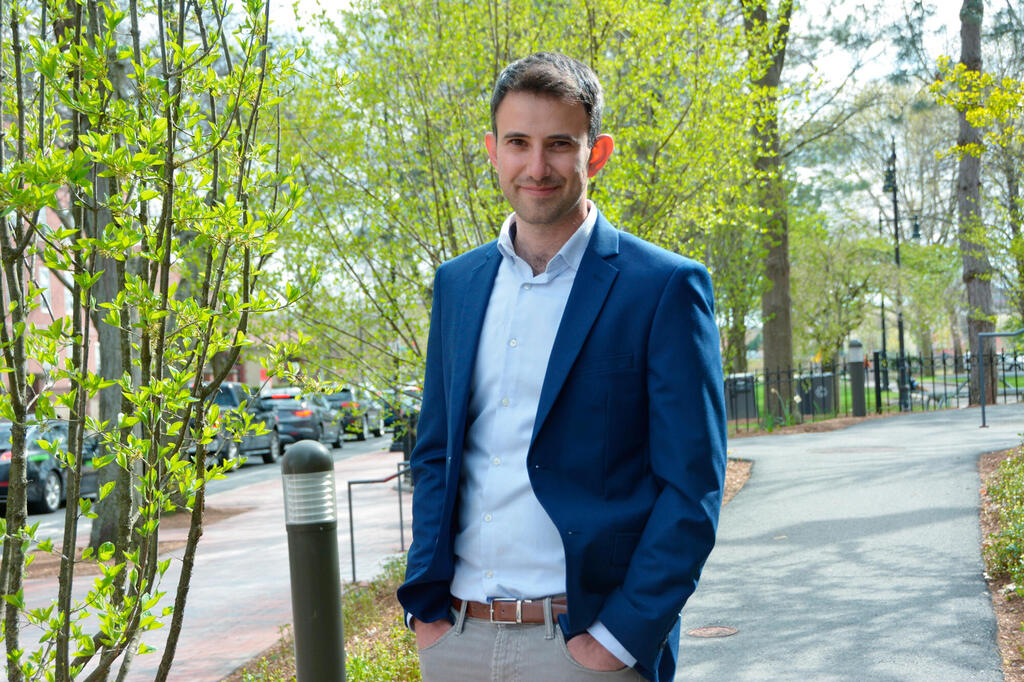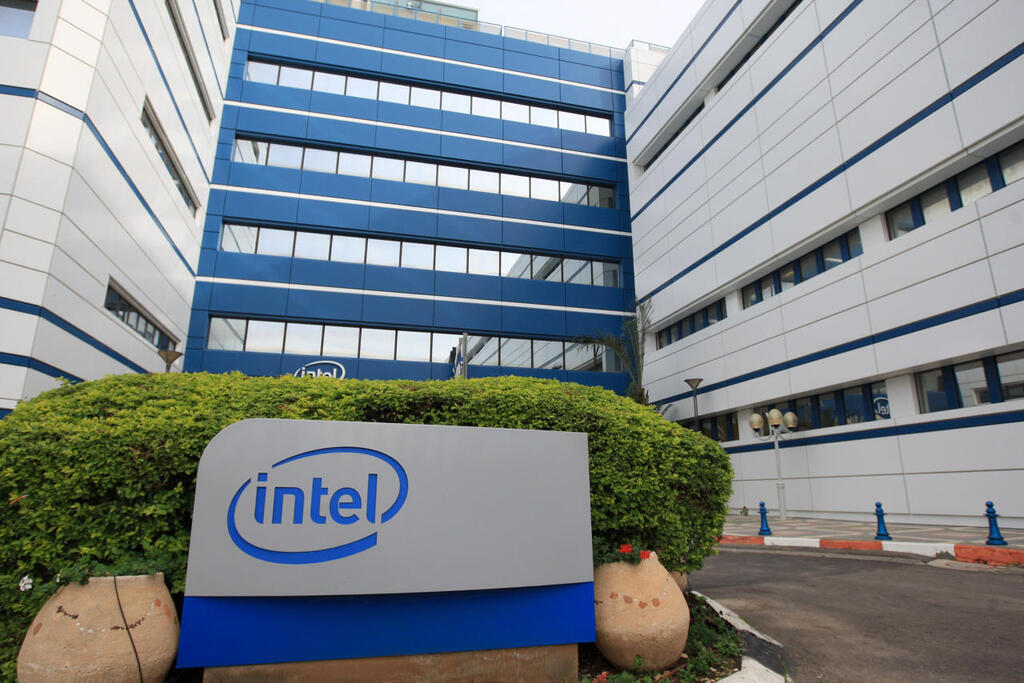
Intel-Israel negotiations revealed: What did the chip giant demand for $25 billion investment?
Kfir Battat, Deputy Director of the Budget Department at Israel's Ministry of Finance, who led the talks with Intel, believes that even though the chip company did not make life easy for him and his colleagues, the final outcome is positive for both Israel and Intel
Intel's dramatic announcement from December that it would invest $25 billion to build a mega-factory for the production of chips in Kiryat Gat, and its commitment to purchase domestically produced products and services for an estimated amount of 60 billion shekels (approximately $16 billion) over a decade - came after a difficult year of negotiations with the Ministry of Finance. Global competition for chip factories and an undermining of Israel's position in the global business community against the background of the attempted judicial reforms did not exactly give impetus to the move. In the end, the move was successful, and it was agreed that Intel would receive from the state an increased grant of 12.8% of its investment, but the corporate tax it would pay would rise from 5% to 7.5%.
Israel's government agreed to give Intel a $3.2 billion grant for the new plant in Kiryat Gat, which according to Intel is an "important part of Intel’s efforts to foster a more resilient global supply chain, alongside the company’s ongoing and planned manufacturing investments in Europe and the United States."
2 View gallery


Kfir Battat, Deputy Director of the Budget Department at Israel's Ministry of Finance. (Courtesy)
Intel operates four development and production sites in Israel, including a manufacturing plant in Kiryat Gat, and employs nearly 12,000 people in the country. The new plant is due to open in 2027 and operate through 2035.
Kfir Battat, Deputy Director of the Budget Department at Israel's Ministry of Finance, who led the talks with Intel, reveals that the company certainly did not make life easy for him and his colleagues. "They wanted to receive a grant of 15% of the establishment costs and maintain the corporate tax benefit of paying only 5%," Battat said in an interview with Calcalist, in which he described the behind-the-scenes negotiations with Intel. "When examining such a request, the first question is whether the company has alternatives. Will it still make the investment even without benefits? We realized that the competition for Intel is much greater than it was in the past, and to that is added a global slowdown around inflation and interest rates."
But Intel also needs Israel. They know the country and have been active here for 50 years.
“Of course, there are advantages to Israel; they aren’t here only because of the grants. The CEO of Intel noted that despite the war, the factory in Israel meets each and every one of the goals, so the company is also here for the excellent human capital. We took that into account; we knew where we were strong in the negotiations, but we mustn’t forget that there are also risks in Israel. There is a war 30 km from the factory, there are instructions from the homefront command that forbid the workers from coming to the factory. In addition, Germany gave much higher amounts, a 40% grant; Intel also established a factory in Arizona and Ohio.”
The fact that the U.S. wants Intel does not mean that it is worthwhile for us.
“True, the necessary condition in our review was that the tax revenues from the company would be higher than the alternative minus the grants. We assume that if Intel was not here, another company would have been established, an average one in the field, where the employees would work and receive an average salary in the field, and would pay taxes at the average level for such companies. We made sure that the income from Intel, after all the grants and tax benefits, is higher than this alternative.”
And how much better is Intel from that alternative?
“We won't say how much. We are negotiating with a company; I don't want to reveal my cards in front of the company and other companies ahead of future rounds.”
How did the negotiations start?
“Around December-January 2022, they contacted my team in the budget department, and we held an initial meeting. They asked us for complete discretion; they really didn't want anything to leak, they have the organizational culture of an American public company. It is true that their interests may be different than ours, but they were professional and had the push and desire to establish the factory specifically in Israel. This was a significant factor. At an early stage, we included the Chief Economist who examined all the numbers and analyzed all the models. Then there were six months, roughly until June, during which the negotiations took place only within The Treasury (Budget Division, Chief Economist, Tax Authority). We also informed Minister Bezalel Smotrich at an early stage, and he gave us full backing to hold the negotiations in a kind of professional bubble and keep it only inside the room.”
Is it conducted as an almost businesslike negotiation?
“Yes. There were moments when we told them, 'Look, you're not on the right track,' even though we know that on our side we are 'in the money.' The idea here is to create a sense that we will not give up without a fight, but do so in a manner that won’t cause the breaking off of the negotiations. Yogev (Yogev Gradus · Director General of the Budget Department) and I played a game in which I said a certain thing, and he said something else, and then we would have a meeting together to supposedly discuss it. Sometimes I went to sleep feeling that I may have exaggerated and everything could come crashing down on me, but I think that in the budget department we know how to do this work. We are good at negotiations, we do it all day here. This again shows the importance of a strong and influential professional level.”
But after all, the minister had an interest in the deal going through, especially in the midst of the judicial coup.
“There was no pressure, no interference. There was full backing to conduct the negotiations; there were no statements like 'no matter what, we have to close this!' It is clear that such statements would weaken our position.”
Did Intel take advantage of the judicial coup to exert pressure?
“I don't think so. I think that we managed to get an excellent result, and that the competitive global environment had more of an impact than anything else. The judicial reforms were in the background; obviously, it caused perhaps greater pressure. But the whole country was under pressure; it never really entered the negotiations room.”
The final signing was after October 7, how did that affect the deal?
“After October 7, I told myself that under no circumstances can we miss out on the deal. There were concerns on our part that they would suddenly see what was happening here, and we also have to remember where Kiryat Gat is located.”
In the end, a grant of 12.8% of the construction costs was agreed upon. It's higher than before.
“But instead of 5% in tax, they are going to pay 7.5%. An additional 1% in tax in our calculation is higher than an additional 1% grant, so you have to look at the agreement in its entirety.”
Is there any meaning to a 7.5% tax? After all, there will soon be a minimum international tax.
“It's a big question if there will be such a tax because right now the U.S. is not on board, and there is a question of how much it will really affect this specific case. The calculation formula for the minimum tax is complex; it includes a tax on dividends and a tax on other activities of the company in Israel, for example, the development activity which is taxed differently today. Therefore, in this issue, we continue to follow developments in the world and analyze how, if at all, our specific case will be affected.”















